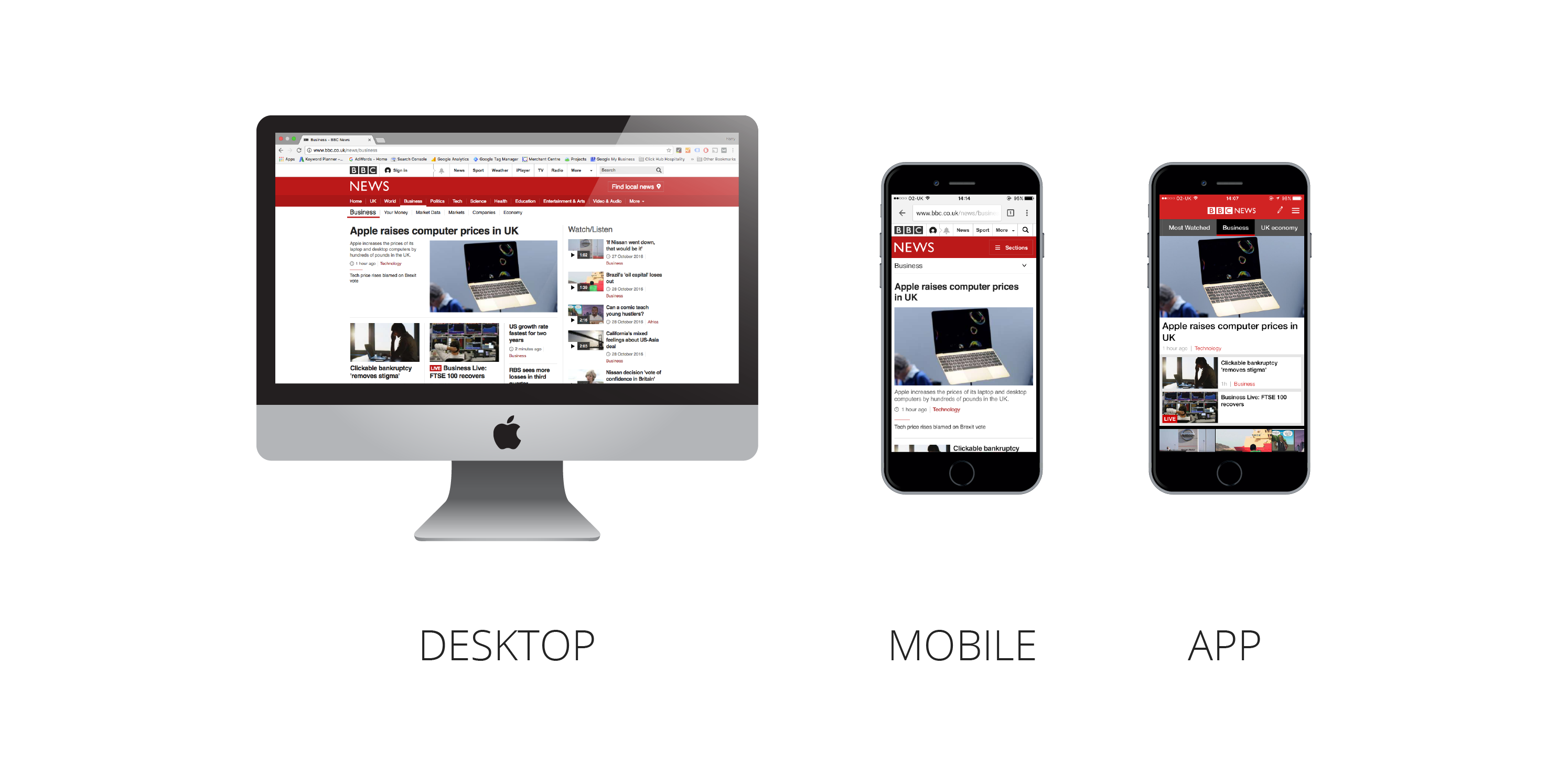Have Smartphones Changed The Way We Use The Internet?
31 October 2016
By Hunt
Since 2014, smartphones have been the most common way of browsing the Internet, now it is a case of survival of the fittest for companies to optimise for mobile and adapt.
The modern dilemma of accidentally spending an hour watching silent baking videos on Facebook has a simple enough cause. Our newfound ability to let our curiosity run wild by browsing the feeds of friends-of-friends, or getting lost in the deep recesses of Wikipedia, finds it origin in the deceptively innocent act of scrolling.
But don’t we do that on computers? Of course, but the real allure of smartphones is that knowledge sits just a few flicks away, millimetres beneath the small screen at our fingertips. Since 2014, mobile broswing has become the most common way of accessing the Internet, and it is now a case of survival of the fittest for companies to optimise for mobile and adapt. But further than just producing web pages for smaller screens, they must navigate the basic instincts and complex desires of modern, hungry smartphone users.
What do we want? Anything! When do we want it? Now!
The way we browse the web is an on-going pattern of cause and effect. As we demand to see information in an accessible way, the sites and apps will develop to appease us. You want the news? Try the BBC app. You don’t want to read? BuzzFeed. You want reactions from the scene, right now? Twitter’s trending topics and Facebook’s embedded videos are each one simple click away. Forget detailed and reliable journalism, smartphones are faster and rawer.
Yet only 4% of us trust the news we read on social media. Such is the nature of our connectivity; our demand for instant access means we’ll jump straight to the most accessible and up-to-date sites first. The 33% of Americans who keep up to date with the news at all times through their smartphones are catalysts for the speeding up of news reports. Further than that, we don’t even need to search for news anymore; notifications are pinged straight to our pockets from all corners of the world. Algorithms even know what we want to know before we do.
Our appetite for data increases as more becomes available. The knowledge of your exact location in the world, what your old school friends look like now and the meaning of a million words are all right there for the taking. The simplicity of a device never less than an arm’s length away means we can satisfy our curiosities in seconds; we are not so much browsing the web, or surfing its gentle wave, than shooting Spiderman webs at it left right and centre.
In fact, many of us don’t go searching for information anymore; our chosen set of apps form 90% of the time we spend on our phones. The fact that 2.5 million pieces of content are shared every minute on Facebook shows us that the modern smartphone user is learning to be selective, and learning fast. Our impulsive choices mean that companies will increasingly develop clickbait, hoping for the illusive pause in our persistent scrolling in which they have a mercilessly short amount of time to sway us to their cause. They must vigilantly optimise for mobile, not only the accessibility of their platform but the information they choose to offer and withhold.
In this sense, our mobile browsing habits come full circle in that they themselves influence the content of the web, developing and morphing it permanently into the most attractive, curiosity-fulfilling platform it can be. Allowing our phones to know everything about ourselves makes this experience even easier. Cookies storing addresses, card details and passwords save on precious typing time; to sign up, watch, buy and create can happen in a matter of seconds. If that means cutting privacy, or ‘broadcasting ourselves’, then so be it. We are all risk-takers; without being so, we could hardly use the modern web at all.
And finally, it happens to us too. Through the speedy forms of media we engage with, our brains are rapidly re-coded to step up to this precedent. Amidst the blitz of new information, we think like we scroll. That beautiful sunset? Instagram hits. A mind-blowing realisation? It didn’t happen if it can’t be put into 140 characters. So as we sit, and watch that Facebook video of the egg being hypnotically cracked into the perfectly centred bowl, and read the subtitles saying “One egg. Whisk.”, we should remember that it is not just technology which created this whole bizarre situation. It is our own, insatiable desire to keep up with new information. We are both its audience and its sustenance. And we love it.
If you’re looking for advice on how you can best optimise for mobile browsing, then get in touch with one of our SEO specialists today

